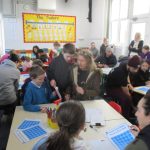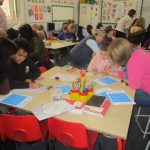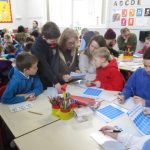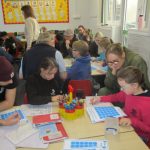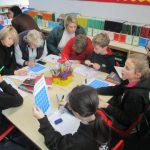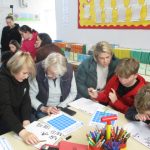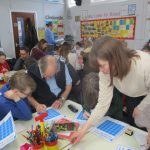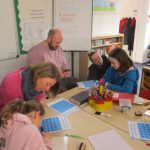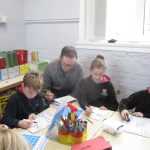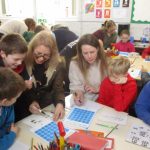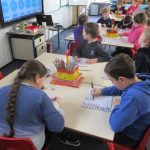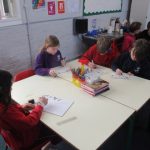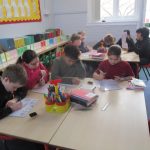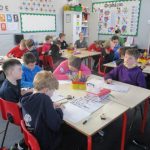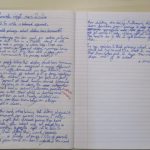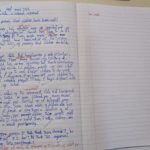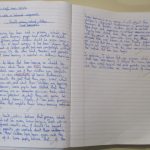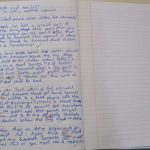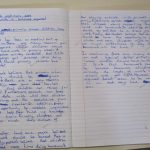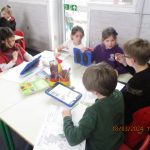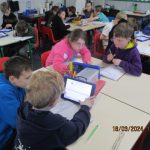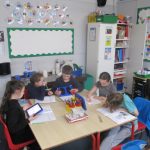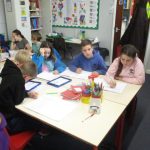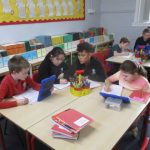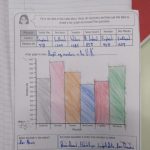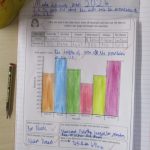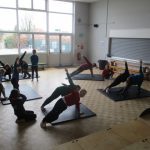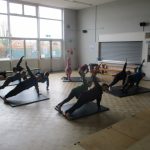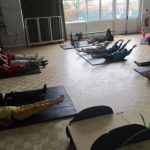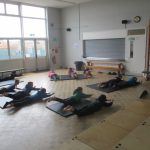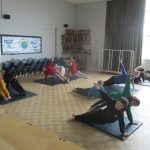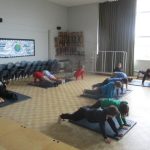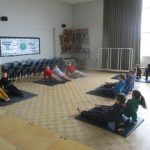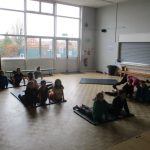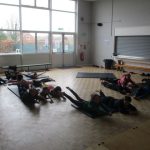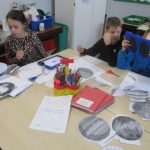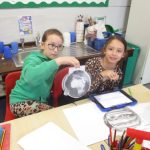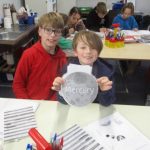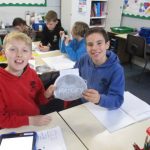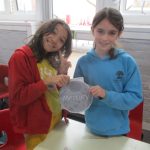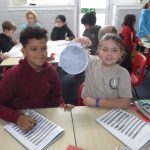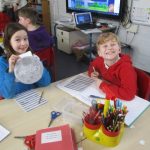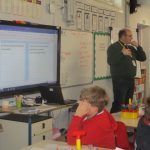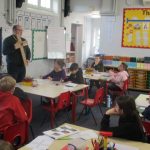Wow! What a super Learning Together Morning we had this week! Thank you all for coming and playing an arithmetic game with us. We really do love sharing our learning, so it was fabulous that so many parents were able to join us. Children have been working hard to improve their arithmetic skills. We have daily maths lessons and we use various platforms and applications such as WWN: to become fluent and confident with number, TTRockstars: to learn and practise our times tables, maths.co.uk: for reasoning and revisiting opportunities. Throughout the term, the children have many opportunities to revisit the mathematical topics taught in previous weeks and work on a variety of questions to reinforce their learning. We were very happy that we showed you our mental and written methods. Hope we impressed you.
In Maths, this week, children learnt how to count in fractions and how to multiply fractions. They also revised adding and subtracting fractions and solved problems.
In English, this week, children wrote another balanced argument on: Should primary school children have homework? Children impressed with their equal amount of reasons for and against the argument, their powerful introductions and conclusions, the formal tone in their writing and their strong vocabulary choices.
In Geography, children researched and wrote about the capital cities of the United Kingdom. So many things we all found out about landmarks, traditional dishes, the cities’ sizes and population, geographical features, tourist attractions, as well as the date the cities were granted their status. Children started working on preparing powerpoint presentations to present their findings to the rest of the class.
They then found out about the hills and mountains of the UK, how hills and mountains are formed and they went through the names and locations of some of the hills and mountain ranges, e.g. the Pennines, Lake
District, Snowdon, etc. Their bar charts showed the heights of UK mountains.
In PE, children kept on performing progressions of inverted movements and worked in small groups to create sequences of actions. Children impressed with their synchronisation of movements and their matching and mirroring skills.
In our recent science lessons, we have been learning about our solar system, utilising iPads to discover intriguing facts and compile them into informative booklets. Among the many revelations, we loved comparing their length of day and year compared to Earth. For instance, Venus’ single rotation on its axis takes 243 Earth days, yet its orbit around the sun spans only 225 days, showcasing a peculiar backward rotation relative to its orbital motion. On the other end of the spectrum, Neptune, the distant ice giant, completes a rotation in just 16 hours, while its journey around the sun extends over an astonishing 165 years.
In our RE lesson, we were privileged to host the Rector from St. James’ Church in Thorley, who shed light on the significance of Holy Week for Christians. This discussion was particularly pertinent as it aligned with our current focus: exploring the question of whether God intended Jesus to be crucified and if Jesus himself was aware of this. During the session, we engaged in a thoughtful dialogue, drawing upon biblical narratives, theological interpretations, and historical contexts to unravel the complexities of this theological inquiry. The Rector’s insights prompted us to critically examine the events leading to Jesus’ crucifixion. Thanks to this visit, we deepened our understanding of Holy Week and its profound implications within Christian faith and practice.

